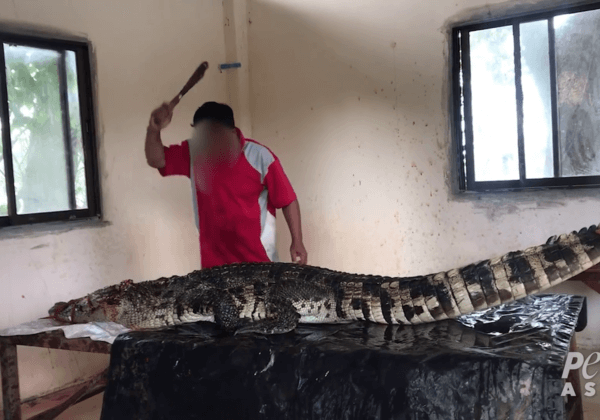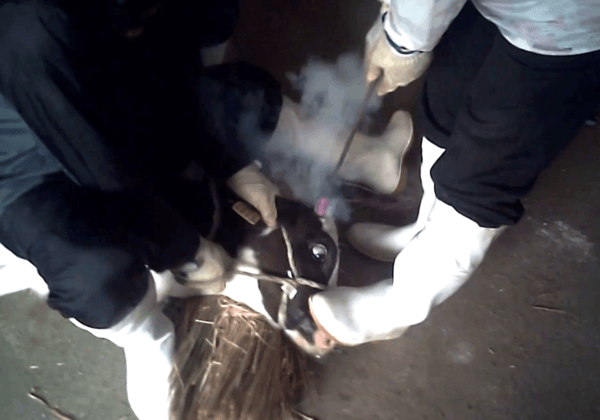Pearls: Cruelty Under the Sea
 There is nothing beautiful about the torture and death of millions of animals. Pearls are stolen from living beings, oysters, who are exploited and murdered. They form when an irritant or foreign object enters the shell of an oyster or mussel. These animals respond to the stress by coating the object with nacre, the crystalline substance that gives pearls their luster. Because only about one in 10,000 oysters will produce a pearl naturally—not nearly enough to keep up with demand—pearlmakers have devised a process called “culturing” or “cultivating,” which allows them to exploit oysters faster and cheaper.
There is nothing beautiful about the torture and death of millions of animals. Pearls are stolen from living beings, oysters, who are exploited and murdered. They form when an irritant or foreign object enters the shell of an oyster or mussel. These animals respond to the stress by coating the object with nacre, the crystalline substance that gives pearls their luster. Because only about one in 10,000 oysters will produce a pearl naturally—not nearly enough to keep up with demand—pearlmakers have devised a process called “culturing” or “cultivating,” which allows them to exploit oysters faster and cheaper.
During culturing, farmers pry open oysters’ shells and insert an irritant, a presumably painful practice that results in the death of half the oysters. The cruelty doesn’t end there: Farmers then suspend the oysters in water in a cage, moving them around and subjecting them to different water temperatures to create the desired shape, size and color of the pearls. The oysters are then pried open for a second time so that the pearls can be extracted. One-third of oysters are “recycled” and subjected to this stressful process again; the rest are killed.
Pearls are used in jewelry, of course, but they are also a common ingredient in cosmetics—pearl powder is used in everything from nail polish to lipstick. Even the animals’ shells aren’t off-limits: After the oysters and mussels have been killed, the mother of pearl—the iridescent material that forms the inside lining of their shells—is taken for jewelry and decorative items.
For people concerned about the environment, there’s another reason to pass on pearls: Raising animals on aquafarms pollutes our oceans, and overharvesting oysters is destroying natural oyster beds beyond repair.
With so many kind options available, there’s no excuse for killing oysters—or any animals—for jewelry, fashion, or makeup. Help save oysters and the Earth by refusing to buy anything made with pearls.
Posted by Edwina Baier








